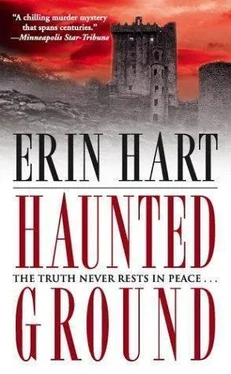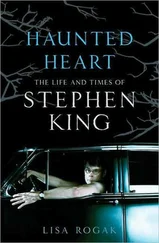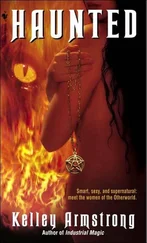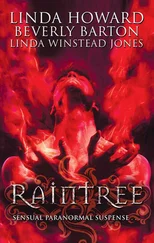It was nearly three years ago now. She and Aoife had stopped in at Pilkington’s to pick up a bottle of ammonia, which she used as a mordant for her dyes. She’d seen Mina Osborne standing at the counter holding her son, who was a bit younger than Aoife. The child wore a brand-new pair of red wellingtons. Mina Osborne had shifted the child from one hip to the other. The tired little boy had put a thumb in his mouth and reached up the other hand to twine his fingers in his mother’s hair, and in this small gesture of self-comfort accidentally touched the clip that held her long black hair in place. The clasp had sprung open, frightening the child, who immediately began to wail, and as the mother comforted him, the hair clasp slid off and fell to the ground at Una’s feet. Both women had stooped to pick it up, and Una noticed the intricate metalwork, and its distinctive design of two elephants. What a beautiful clasp, she had said, handing it back. Mina Osborne had looked at her so strangely that Una hoped it was not the sight of herself and Aoife that had caused the pain and sadness in those lovely dark eyes. Mina had taken the clasp with barely audible thanks and left the shop. It was the very afternoon she had disappeared.
Una looked down at the clasp in her hand. Two or three long black hairs were caught in its hinge. She reached back into Brendan’s hiding place, this time pulling out a pile of carefully folded newspaper cuttings. “Wife, Son of Local Man Missing,” said one. “Family Appeals for Aid in Tracing Mother and Child,” read another. “Gardai Resume Bogland Search Today,” and finally, “Gardai Baffled by Disappearance.”
Why was Brendan hoarding all these things? What explanation could he possibly have? She hurriedly shoved all her discoveries back into the hole, not knowing or caring whether they were in exactly the same place. She nudged the bed back against the wall. Brendan had always been hot-headed; he’d go off by himself when he needed to think, walking the bog or the mountain, or sitting by the lake until he had worked things out or calmed down a bit. He often snapped at her and Fintan. But she’d always believed he was anything but a hard man inside. He could be very gentle with Aoife. She’d lived with her brother in this house for more than twenty years, but did she know him well? Willing her fears not to be true, Una set the pictures on the walls to rights and closed the door to Brendan’s room once more. She decided to say nothing about the crow.
Dunbeg reminded Cormac of his own home place in many ways: the humpback bridge, the small lace-curtained windows on the white, pink, and green pebble-dash houses that lined the only main street. The original Irish name for this place was dun beag, “small fort.” It was possible that there had been no fort here for a thousand years, but the name lived on. A couple of sagging shop fronts stood abandoned, with weeds sprouting in their rain gutters, and a thin layer of soot seemed to cover everything. Even the lowering gray sky contributed to the town’s pervading air of pessimism. There had obviously been a recent push to tidy up and present a good face, as evidenced by a couple of freshly painted pub fronts with hanging pots of flowers. But the roar of the Celtic Tiger had yet to be heard here, and Dunbeg was not near any of the main roads so frequented by cars full of tourists. Cormac guessed any holiday-makers here tended to be solitary anglers looking for a quiet spot to fish.
As he pulled to a stop at the curb, a muscular, short-haired terrier and a shaggy black and white sheepdog ambled past, taking turns for a sniff and a piddle at each doorway, a couple of old comrades out on a spree. He climbed out of the jeep and ventured toward a nearby window that displayed a miscellany typical of a small-town hardware shop: a pitchfork and spade, wallpaper brushes and paint scrapers, pots and pans, clocks, locks, trowels, dog leashes, flashlights, and fishing poles. A plainly painted antique sign above the window said, “J. Pilkington.” As he drew nearer, a white placard propped in the window caught his eye; below the quatrefoil emblem of the Garda Siochana, the national police force, was a black-and-white image of a woman and child. The notice was dated almost a year ago. Cormac stooped to read the smaller type. “In the approach to the second anniversary of the disappearance of Mina and Christopher Osborne, the Gardai are renewing their appeal for information that would or might help in the ongoing investigation.” The paragraphs that followed gave physical descriptions and details of what the two were last seen wearing. As he read, Cormac became aware of a pair of eyes looking intently at him from the other side of the glass. When he glanced up, the woman inside pretended to be dusting the shelves below the window.
He entered the shop, and as he went about picking up the things he’d need for the dig, had the distinct sensation that he was still being watched, though every time he raised his eyes, there was no one in sight. When he’d gathered all he needed, he proceeded to the counter.
“Can I help you find anything else, sir, or is that the lot?” piped a bright-eyed pixie of a woman. Hers was the face that had been staring at him through the front window. She was thin and dark, and wore a loud polka-dotted black smock. The woman’s wispy haircut further emphasized her elfin character.
“I’ll also need a roll of baling plastic and a half-dozen planks of wood, if you have them, about eight feet long.”
“Ah, we do,” the woman said. “I’ll get the young lad to fetch them out for you.” She stuck her head through the doorway to the back room, and communicated his order to a red-haired boy of about fourteen who was sweeping the floor inside.
“You must be the archaeologist fella who was here before,” said the elf-woman, leaning forward on the till. Cormac smiled faintly.
“I am.”
“Dolly Pilkington’s my name. You’re very welcome to Dunbeg.”
“Cormac Maguire. I have a letter here somewhere from Hugh Osborne, giving me leave to charge these things to his account,” he said, patting his various pockets to locate the paper.
“Now, don’t trouble yourself, there’s no need for that at all.” She began totting up his purchases with pencil and paper. “I don’t suppose there’s any news on your bog person then?” she asked. “Oh Lord, you should have heard the rumors flying here a few days ago. Horrible they were, too. Desperate stories about murderers and banshees. There was grown men and women didn’t sleep in their beds that night, I’m tellin’ you.”
“I heard it was somebody’s chopped-off head,” said the freckly red-haired boy, who’d returned with the plastic sheeting and boards.
“This conversation is none of your concern,” said Mrs. Pilkington. “Set those things outside the door, and then back on the broom with you, before I give you a box.” The boy’s lower lip jutted defiantly, but he did as he was told.
Cormac was unsure how to respond, knowing that the next person to make a purchase at Pilkington’s would no doubt emerge with as much knowledge of the cailin rua as he was willing to divulge. But better they should have the basic facts than to let rumors breed. “We really don’t have much information at all at this point,” he said, “apart from the fact that it’s a young woman with red hair.” He searched for the least sensational combination of words. “And we didn’t find her body.”
Mrs. Pilkington made a hurried sign of the cross. “Be the holy mother o’ God. Well, of course the first thing we all thought was that it was the pair of them,” she said, pointing toward the placard in the window. “And wasn’t it strange that Mr. Osborne was right here in the shop, standing where you are now, when my Oliver came in with the news about a body bein’ found in the bog—well, I suppose you’re after saying it wasn’t a body at all, but we didn’t know that at the time, now, did we? Anyway, poor Mr. Osborne went pale, so he did, the very same as the color of chalk, and took hold of Oliver by the shoulders, asking where had he heard it, and where did they say it was, and was he certain he’d heard it right, till I thought he’d shake the life out of the poor lad. And as soon as Oliver answered him, he bolted straight out that door, never even waited for his packages or his change. I had to send Oliver round with the parcels and the money this morning, because he never came back for them, not that day, nor the next, isn’t that so, Oliver?”
Читать дальше











